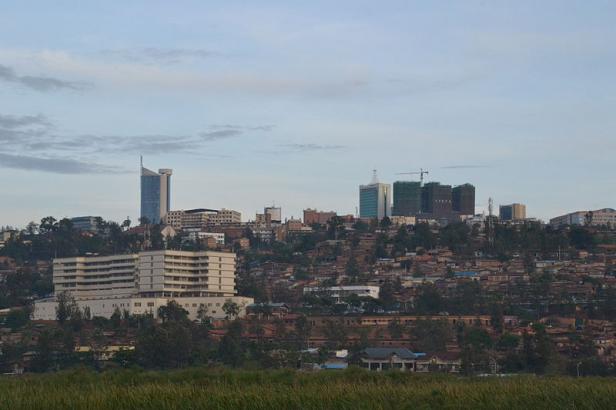Dr. Blaise Uhagaze, director of health and environment in the city of Kigali, indicates that high population density in the city of Kigali causes a burden to health system.
This was said in Kigali this Tuesday during a workshop organized by the Belgian Technical Cooperation (BTC).
Over the past decades, de number of inhabitants in the capital has skyrocketed. Where there were only 6,000 in 1962, in the next 40 years it grew a hundred-fold to reach 765,325 by 2002. The growth rate has further increased in the past decades, to 923,176 inhabitants in 2006 and an estimated 1,220,000 today. According to projections, 2 million people will live in Kigali by 2020.
Uhagaze indicated that as a result the public health system in the capital is overwhelmed. For example, Kigali has the highest prevalence HIV-AIDS prevalence in the country with 7%, against 3% nationwide.
The capital also accounts for more than a third of the tuberculosis cases in the country, and also had a bigger share of other respiratory and non-communicable diseases like asthma and diabetes. In addition, it rates high for drugs abuse, violence and accidents, with which the health system also has to deal.
Against that, the public health sector is woefully lacking in human resources and infrastructure with only 18 health centers and 3 hospitals. This results in too many patients ending up at CHUK, a referral hospital, where it is estimated that 26% of the cases could have been treated at a lower level.
Staff is also insufficient, with just 1 nurse (A2) and 0.4 doctors per 10,000 inhabitants. Needless to say, there is an even greater gap when it comes to specialists, who are mainly to be found in private hospitals and clinics, yet in general those do not accept the public health insurance (mutuelle de santé).
One positive point is that there is reasonable growth in the private health sector at 30%, although currently it mainly caters for out-patients.
Dr. Uhagaze indicated that there is a program to better equip health centers and train nurses to improve treatment of especially non-communicable diseases.
Efforts are also being made to increase infrastructure. For example, with the assistance of BTC four health centers were equipped as a way of increasing quality of care offered at the first level to reduce unnecessary transfers to referral hospitals that receive patients from all around the country.
The health sector seeks to focus on four components namely institutional support, the mental health program, the medical maintenance center as well as the urban health program.
Officials remarked that there is a need for a public-private partnership to promote health services at the lowest community level. In order to effectively provide quality health care, one official in the ministry indicated that an accreditation body to monitor health activities is required.
Source: All Africa





